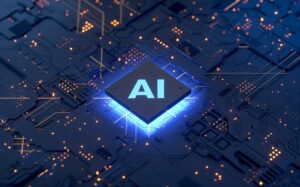Artificial Intelligence (AI) technology is rapidly advancing and has the potential to revolutionize the field of molecular biology. One of the latest developments in this area is the ability to generate original proteins from scratch using AI algorithms.
This technology has the potential to dramatically speed up the discovery and development of new proteins with specific functions, which could have a significant impact on the pharmaceutical and biotechnology industries.
Proteins are complex molecules that are responsible for a wide range of biological functions, including enzymes, hormones, and antibodies.
They are the building blocks of life and are essential for many of the processes that occur in our bodies. The process of discovering new proteins and determining their structure and function is a long and complex process that can take years or even decades to complete.
The new AI technology, on the other hand, generates original proteins from scratch using machine learning algorithms.
GADGETNEWS
The algorithms are trained on large datasets of known proteins, and they use this information to generate new proteins with specific properties. This approach has several advantages over traditional methods, including the ability to generate large numbers of new proteins in a relatively short amount of time, and the ability to generate proteins with specific functions.

One of the key advantages of AI-generated proteins is their potential for use in drug discovery. The ability to generate proteins with specific functions could significantly speed up the process of finding new drugs and therapies.
For example, researchers could use AI algorithms to generate proteins that bind to specific disease-causing molecules, which could then be used as a starting point for the development of new drugs.
Another area where AI-generated proteins could have a significant impact is in the field of biotechnology. The ability to generate new proteins with specific functions could be used to create new enzymes and catalysts for use in industrial processes, such as the production of biofuels, chemicals, and pharmaceuticals. This could lead to more efficient and sustainable processes and ultimately, a more sustainable future.
The AI technology that generates original proteins from scratch is still in its early stages, and there is still a lot of work to be done before it can be fully realized.
However, the potential benefits are clear, and the technology is likely to play an increasingly important role in the discovery and development of new proteins in the future.
In conclusion, the ability to generate original proteins from scratch using AI technology is a significant development in the field of molecular biology. This technology has the potential to revolutionize the process of discovering new proteins and determining their structure and function and could have a significant impact on the pharmaceutical and biotechnology industries.
The potential benefits are clear, and technology is likely to play an increasingly important role in the future as it continues to develop and evolve.
CREDIT: Wikipedia

